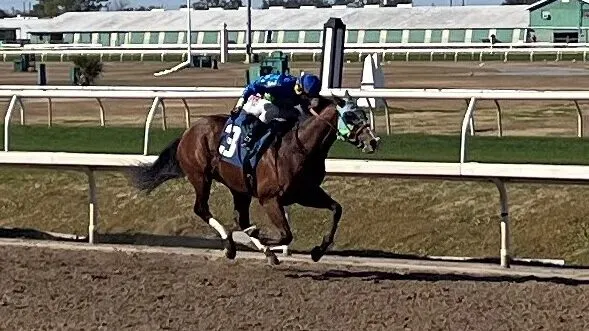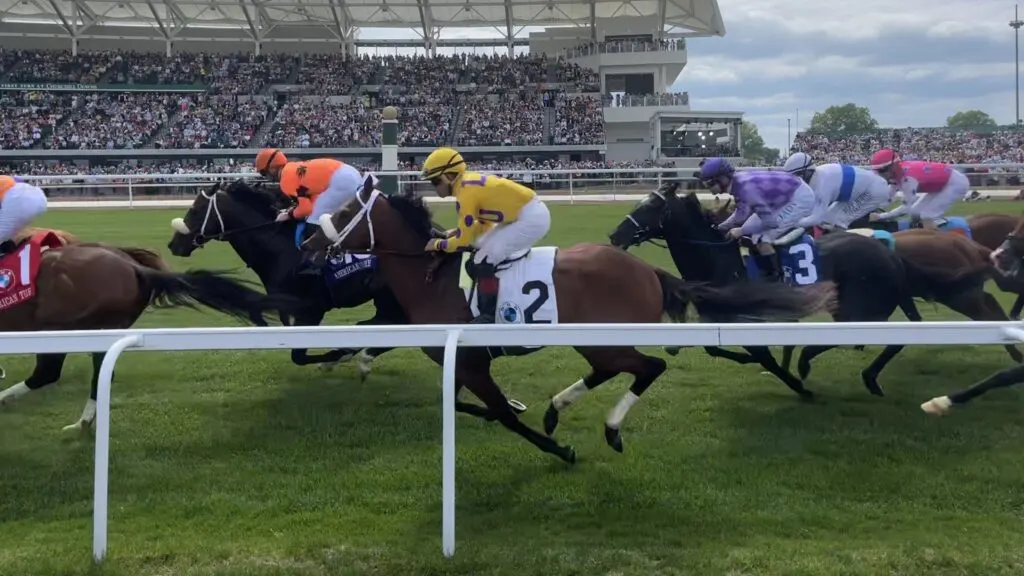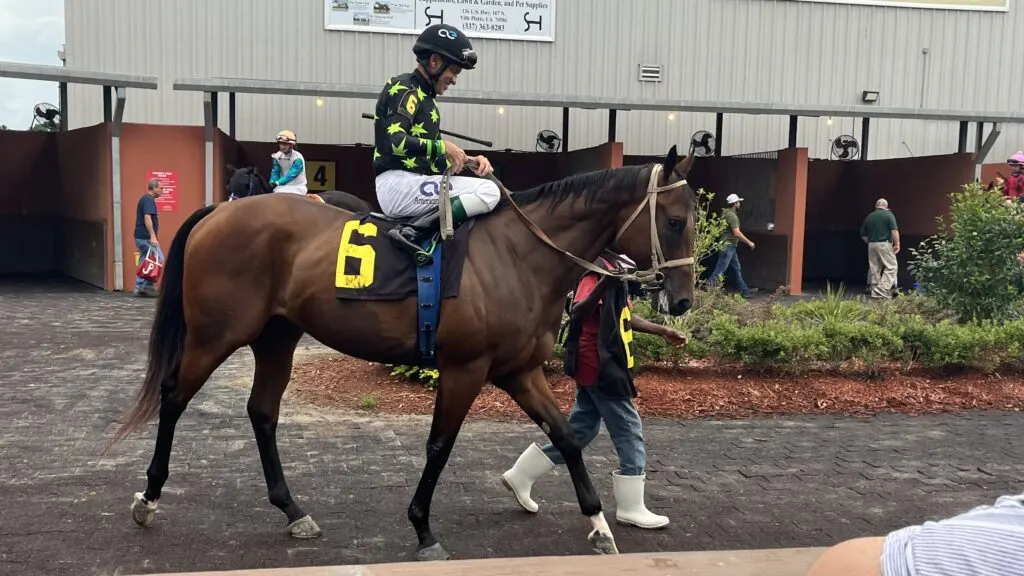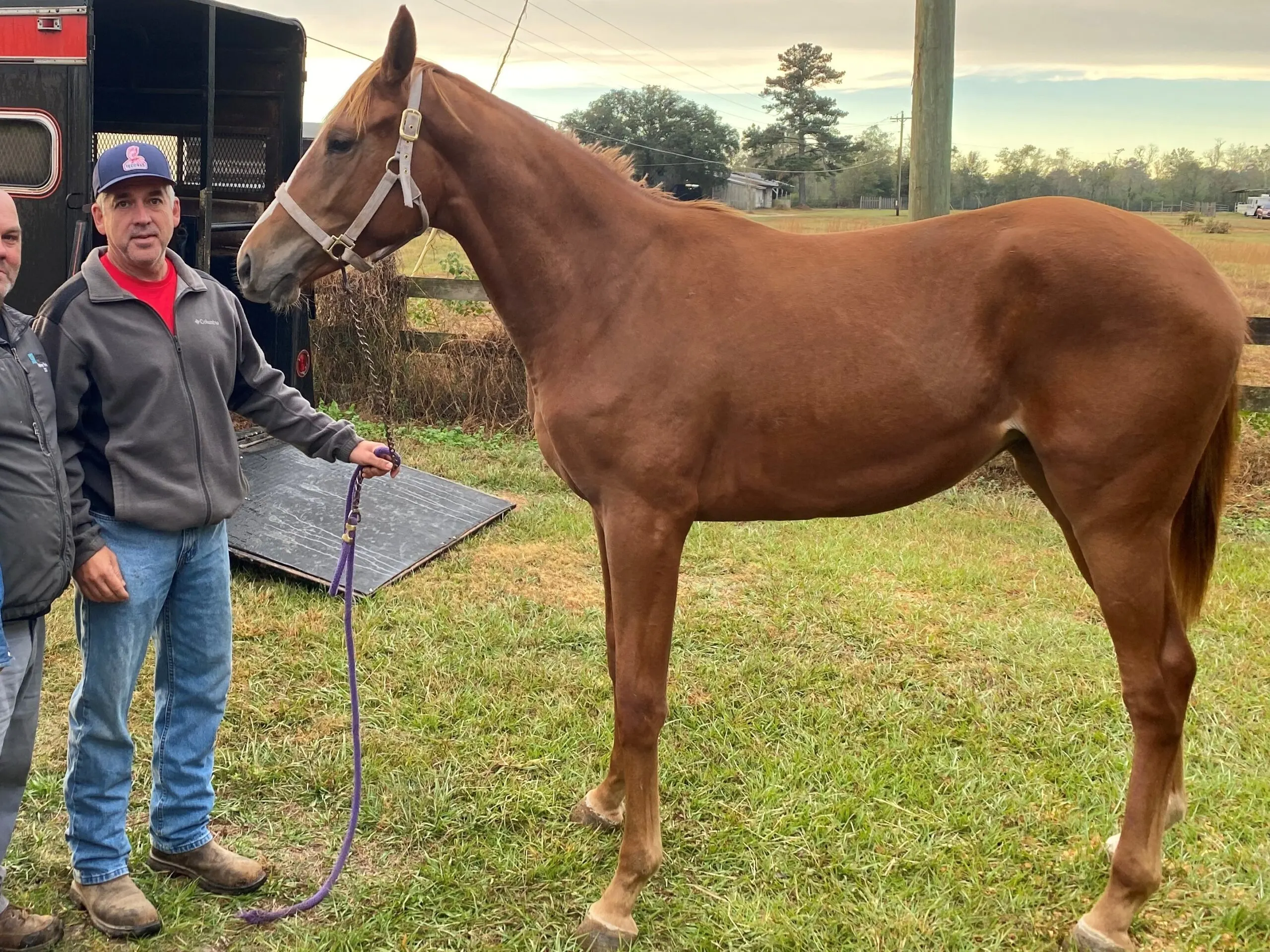Last updated: February 21, 2024
In the dynamic world of horse racing, choosing a jockey to ride a horse is a decision rich in strategy and teamwork. Drawing from my experience as a racehorse owner, I’ve seen that this isn’t a simple choice but a collaborative effort involving the jockey’s agent, the horse’s owner, and the trainer.
It’s a delicate balance where skill, reputation, and mutual understanding between horse and rider play crucial roles. This article aims to uncover the layers of this complex decision-making process, highlighting how the right jockey-horse combination can significantly impact the race’s outcome, blending strategy with a deep connection.

Navigating Jockey-Horse Pairing
Selecting the right jockey for your horse is a nuanced process that blends strategy, analysis, and deep industry knowledge. Here’s an inside look at how decisions are made, drawing from my firsthand experience in the racing world.
Initial Assessment and the Role of the Condition Book
- Starting Point: Evaluation of the jockey’s recent performances and preferences sets the stage for matching them with the ideal horse and race.
- Condition Book: This crucial tool lists upcoming races, detailing requirements and purse money, guiding the selection of suitable races for the jockey’s strengths.
Strategic Planning and Analysis
- Race Selection: Using the condition book, we identify races that align with the jockey’s capabilities, then delve deeper into analyzing competition, track conditions, and historical data.
- Choosing the Horse: The focus shifts to finding a horse that matches the jockey’s style, considering factors like form, training, and temperament, often requiring discussions with trainers for deeper insights.
The Decision-Making Process
- Collaboration: The final choice involves collaborative strategizing on race tactics and adjustments based on the horse’s condition and track status on race day.
A Real-Life Scenario
- Adaptability in Action: Our horse, always a close second, found victory with a substitute female jockey when our regular rider was unavailable. Returning to our usual jockey led to another near miss. Intrigued, we tried another female jockey for the next race, resulting in another win. This pattern underscored the significant impact of exploring different jockey partnerships on our horse’s performance.
Key Takeaways
- The jockey-horse selection process is intricate, relying heavily on the condition book and strategic analysis.
- Decisions are made through a collaborative effort, considering a wide range of factors from jockey preferences to horse compatibility.
- Real-life scenarios underscore the dynamic nature of racing, where adaptability and expert advice are key to success.

Decoding the Jockey’s Horse Selection Process
Choosing a jockey isn’t just about picking a winner; it’s a nuanced decision involving the jockey and their agent, where strategy, relationships, and intuition converge.
Key Decision Factors
- Relationship Dynamics: The bond between jockey, owner, and trainer is vital. Opting for or against a horse involves weighing immediate race prospects against the value of long-term partnerships.
- Style and Compatibility: A jockey’s unique riding approach must align with the horse’s temperament and racing style, influencing performance outcomes.
- Race Conditions: Track surface, race distance, and type are critical in matching a jockey’s skills with the horse’s capabilities.
- Strategic Planning: Assessing competitors, understanding race stakes, and evaluating the horse’s readiness are all strategic elements that guide the selection.
- Intuition and Experience: Often, a jockey’s gut feeling or prior success with a horse plays a significant role in their choice.
- Horse’s Characteristics: Identifying a horse’s strengths—whether it’s speed in sprints or endurance in long races—is crucial for a successful pairing.
Insights for Success
The selection process is a delicate balance of analytical assessment and personal judgment, where understanding the horse’s nature, ensuring compatibility with the jockey’s style, and strategic considerations are key to achieving racetrack success.

The Crucial Role of Jockey Agents
In horse racing, the selection of a jockey is a collaborative effort, involving the horse’s team and the jockey’s agent. My journey into racehorse ownership revealed the agent’s pivotal role in this process.
Key Responsibilities
- Strategic Bookings: Agents aim to pair jockeys with winning horses, balancing negotiations and racing insights.
- Scouting Talent: They assess horses during morning workouts, advising jockeys on tactics and horse compatibility.
- Racing Acumen: A deep understanding of racing dynamics is essential for guiding career-impacting decisions.
Behind-the-Scenes Influence
Jockey agents, with their strategic foresight and racing knowledge, are integral to the sport’s success. Their expertise in matching jockey strengths with the right horses shapes the outcomes of races and careers.
Takeaway
The role of a jockey agent extends beyond representation; they are key strategists and advisors in the competitive world of horse racing. Their contributions, though not always visible, are crucial to the thrilling moments on the track.

Jockey-Horse Synergy: The Winning Edge
In horse racing, the connection between a jockey and their horse is pivotal, often turning a good pair into champions. This synergy, blending skill, mutual understanding, and responsiveness is crucial for success.
Key to Victory: A perfect jockey-horse match moves in unison, with each anticipating the other’s moves. This deep understanding is vital, especially when split-second decisions impact the race outcome.
The Role of Experience: Experienced jockeys excel in reading races and knowing precisely when to push or conserve the horse’s energy. Their ability to sense and adapt to the horse’s mood and energy is an art developed over years.
Real-Life Success: I’ve witnessed races where a jockey’s intuitive connection with the horse led to surprising victories. For example, a jockey’s patience and timing exploited a horse’s late-race speed for a win, showcasing the importance of knowing the horse’s strengths.
Building Trust: Successful partnerships often display a clear trust and understanding. Regular training and preparation are key, allowing jockeys and horses to build a relationship that transcends mere physical readiness, fostering a deep mutual trust.
Training and Preparation: Effective training is not just about physical readiness but also about developing a profound bond. This involves countless hours of working together, understanding each horse’s unique traits, and building a foundation of trust and responsiveness.
This synergy isn’t just beneficial; it’s essential for those aiming for the pinnacle of horse racing success.

Race Prep: A Jockey’s Guide
Preparing for race day, a jockey undertakes a comprehensive regimen that fuses physical conditioning, mental readiness, and a profound bond with their horse. This approach ensures peak performance when it matters most.
Physical Conditioning: The key to a jockey’s success is maintaining optimal fitness. This includes targeted exercises and dieting to meet strict weight guidelines, enhancing their ability to manage a racehorse at high speeds.
Mental Preparation: Equally crucial is mental agility. Through visualization and mental drills, jockeys prepare for the race’s demands, readying themselves to make quick, strategic decisions on the track.
Building a Connection: A deep rapport with the horse is indispensable. Training sessions are vital for understanding the horse’s traits and adjusting riding techniques to complement the horse’s strengths and personality.
Morning Workouts: These are essential for simulating race conditions, allowing jockeys and horses to adjust their coordination. It’s an opportunity to evaluate the horse’s condition and refine strategies based on the track and upcoming race.
Strategizing for Success: Insights from training and an in-depth understanding of the race environment inform pre-race tactics. Strategies are crafted to leverage the horse’s advantages, whether that means leading from the start or saving energy for a final push.
Real-World Strategy: Consider a horse with a knack for finishing strong. A jockey might choose to conserve energy early in the race, setting the stage for a decisive sprint to victory. This showcases the jockey’s ability to strategize effectively.
Ultimately, a jockey’s race day preparation is an intricate process that blends fitness, strategy, and partnership with the horse. It’s this detailed preparation that distinguishes contenders from the rest of the field.
Below is a YouTube video that explains how jockeys are matched with horses.
Frequently Asked Questions (FAQs)
How big are jockeys typically?
Jockeys are generally quite light and short. They usually weigh around 108-118 pounds and are often around 4’10” to 5’6″ tall, as their weight and height can affect horse speed.
Why do jockeys wear bright clothing?
Jockeys wear bright, colorful silks for identification. Each pattern and color represents the horse’s owner, making it easier to identify horses and jockeys during a race.
Can a jockey change horses before a race?
Yes, a jockey can change horses before a race, usually due to factors like horse health, strategy changes, or prior commitments with trainers or owners.

Conclusion: Choosing a Jockey
Reflecting on the jockey-horse selection process, it’s evident that this is a nuanced and complex aspect of horse racing that demands respect and appreciation. The decisions made in this process are a testament to the skill, knowledge, and dedication of those involved in the sport.
As a racehorse owner, I have witnessed firsthand the profound impact these decisions can have, not just on the outcome of a race but on the careers and lives of the jockeys and horses involved. In the end, the art of matching a jockey with the right horse is a dance of precision and intuition, one that lies at the very heart of the thrilling spectacle that is horse racing.
Get Involved
Your thoughts and experiences enrich our discussion on the fascinating world of horse racing. Share your insights or ask any questions you have in the comments below – let’s engage in this thrilling conversation together!
Do you have a perspective or query about horse racing? We’d love to hear from you! Join the conversation in the comments section and help us explore this exciting sport even further.
Poll Question
Meet Miles Henry
An avid equestrian and seasoned racehorse owner, Miles Henry brings his extensive experience to the equine world, proudly associating with the AQHA, The Jockey Club, and various other equine organizations. Beyond the racetrack, Miles is an accomplished author, having published various books about horses, and is a recognized authority in the field, with his work cited in multiple publications.
🔗 Connect with Miles:
Twitter
Facebook
YouTube: Check out race highlights, horse care tips, and more!

